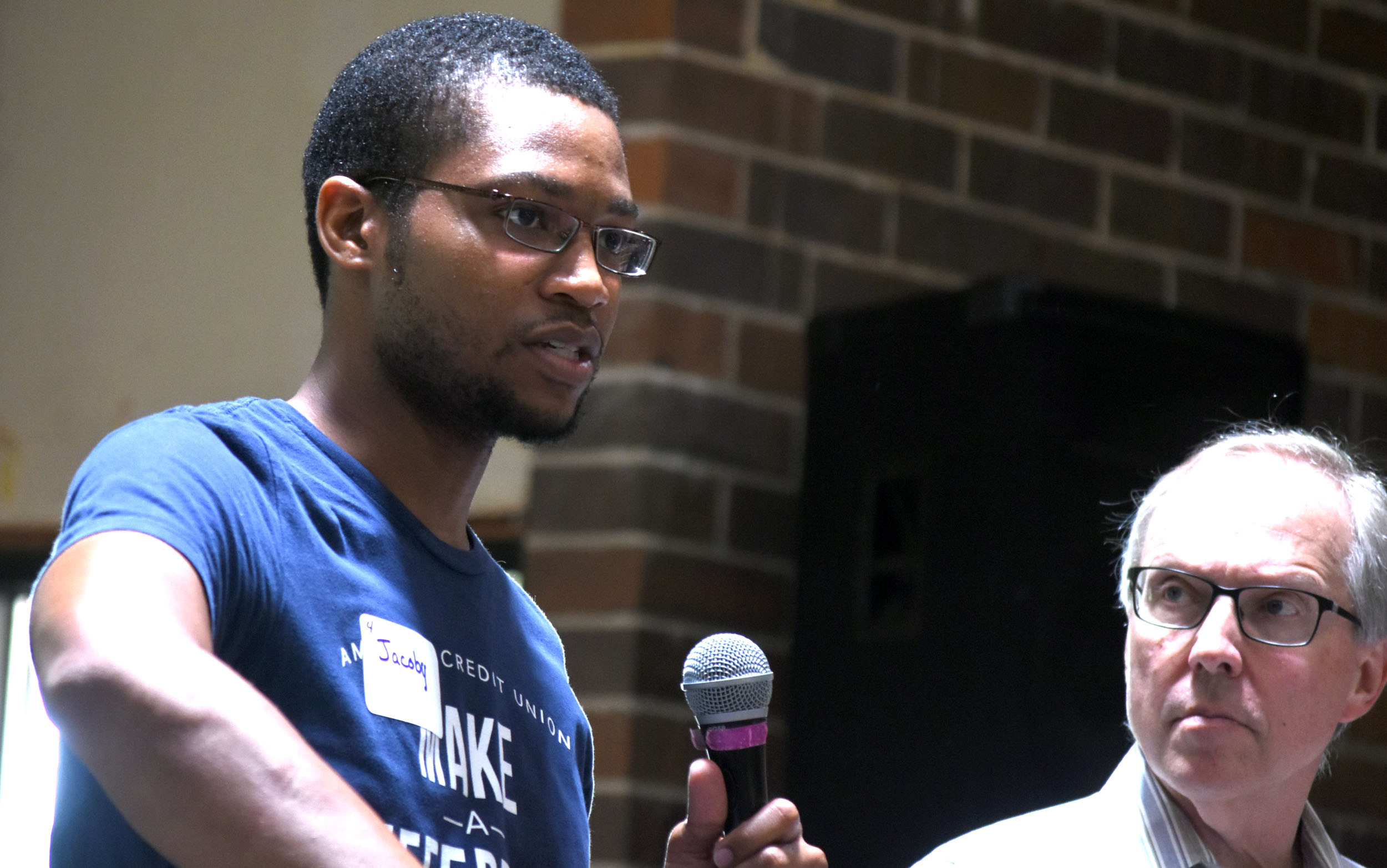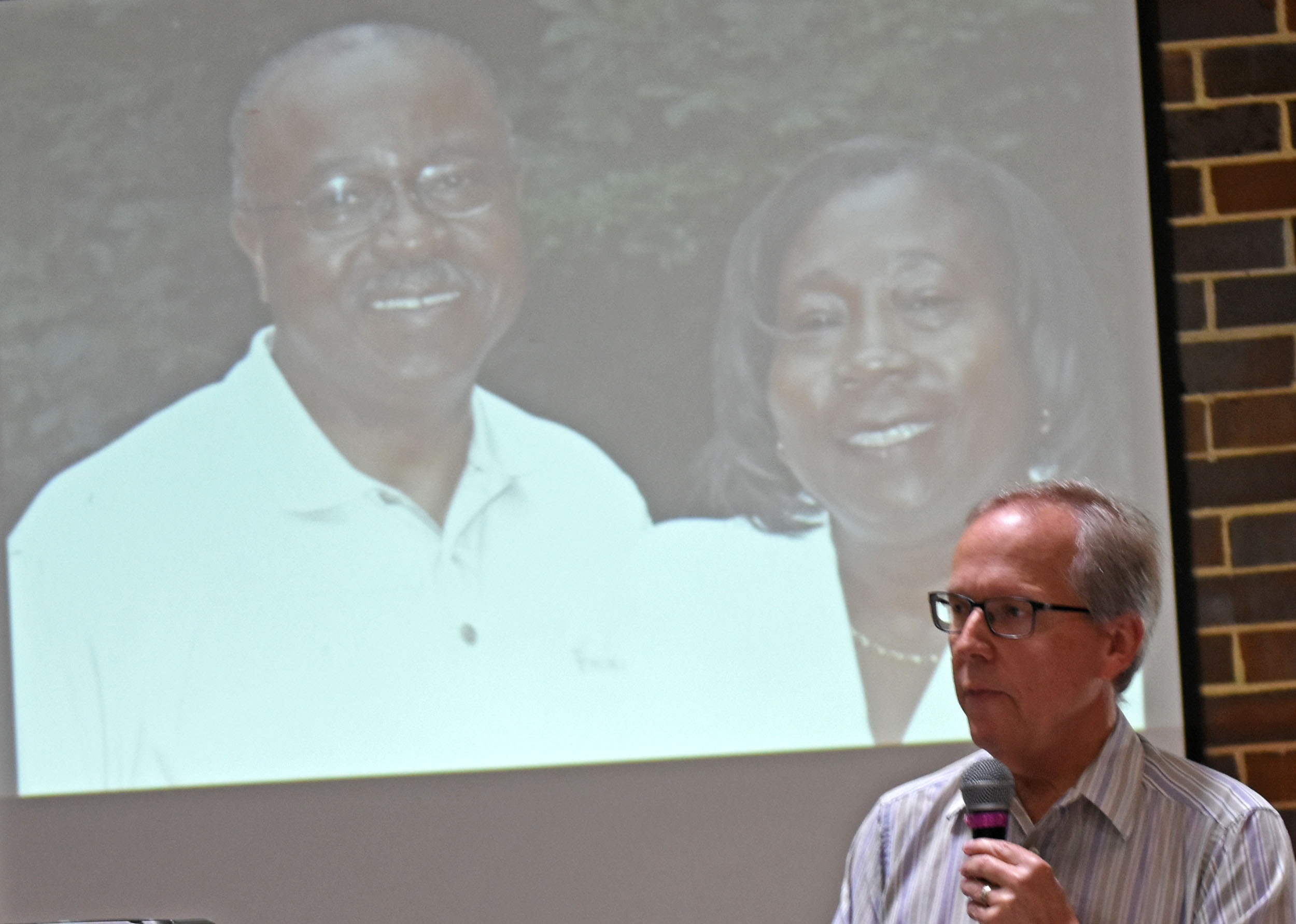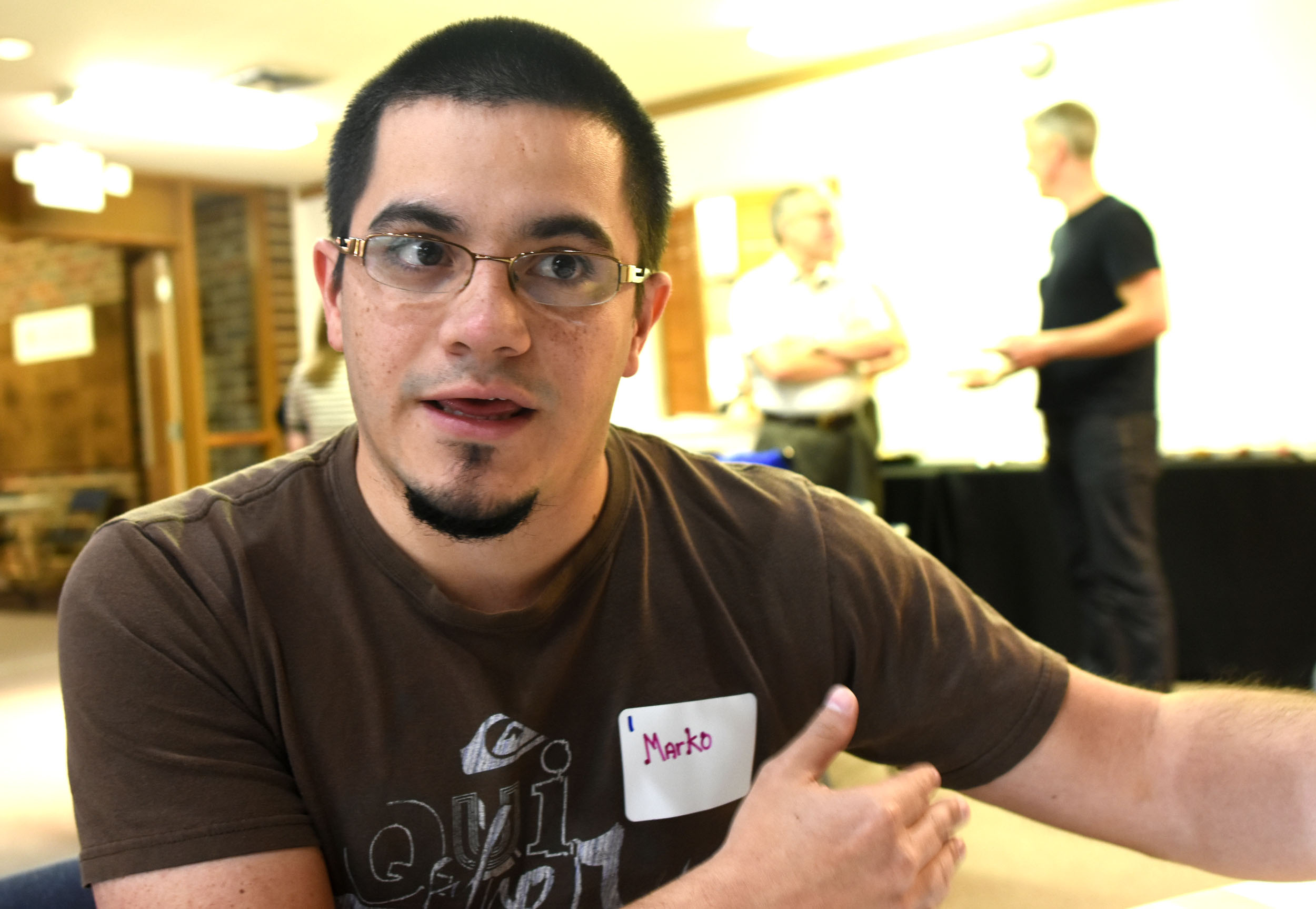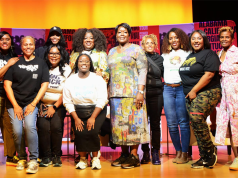
By Solomon Crenshaw Jr.
For The Birmingham Times

The Rev. Ron Higey had his plans laid out. The pastor of Birmingham International Church in Vestavia Hills was going to include a few quotes from a black friend in the Let’s Talk Race Relations session he planned for last Saturday.
But that plan changed when he read the letter from the Rev. Donald Smith, pastor of Sylvania (Ohio) Community Church.
“When I saw what he gave me, it was so good, I wouldn’t do it justice just to take a quote,” Higey said. “I felt I really needed to read his story.”
So Higey showed a picture of Smith and his wife Joyce as he read Smith’s recollections of his experiences, which more than moved the nearly two dozen people in attendance. Especially impactful was Smith’s account of a white realtor who wouldn’t respond to the Smiths’ full-price offer for a house.
The Smith family was told by their realtor, who is also white, that “the color of (their) skin” was the reason they didn’t get a response.
“This is such a recent example,” Higey said. “It is not a problem that’s gone away. It’s a problem that still exists and is still real and has to be contended with.”

Ruth Rivera is a 71-year-old Vestavia Hills resident who was raised in Puerto Rico. She was filled with indignation when Smith’s words were read aloud.
“It’s a lack of respect for another human,” she said. “‘How could you do that to somebody?’ That’s what (annoys) me. That’s what gets to me. I don’t care if you don’t like me because you don’t like the way I look. But I don’t want you to get in the way of me getting where I have to go.”
During the discussion the group talked about Black Lives Matter. Marko Requena, a 30-year-old who was raised in Venezuela, said he didn’t initially understand the movement, saying media depicted those involved in Black Lives Matter as being in violent protests.
Requena, an assistant pastor of the church, said he now understands. “The reason why black lives matter is because they are being oppressed,” he said.
Jacques Cole, a 30-year-old Hoover resident who grew up in Birmingham’s Acipco Neighborhood, compared “all lives matter” to highlighting every word on a page in a book. As a result, she said, nothing stands out.
“When you say ‘all lives matter,’ you’re minimizing the true issue that needs to be addressed and that’s how black lives are being treated,” the black woman said. “(What’s highlighted) in ‘Black Lives Matter’ is that our youth, our men, our women who are black are being mistreated based solely off their skin color.
“It’s not to minimize other lives,” Cole continued. “It’s to say, ‘Hey, this is where the problem lies.’”
Ray Wilson, of Minor, said he’s a scientist who looks for reasons, cause and effect. Wilson, who is white, said he wants to know what he can do to improve race relations.
“Civil rights started back in the 1960s. That’s been over 50 years and it still seems to be so much more to do,” the 65-year-old said. “We’ve got laws in place but apparently, they’re not being enforced.
“Individually, we seem to get along. But the problems are with institutions. You can pass a law that says, ‘You can’t do this.’ But if that law’s not enforced it keeps happening.”
Wilson’s wife Muffin said a person’s thoughts about those of another race are shaped by what their parents tell them.
“You have to realize there’s a choice to be made and you have to be willing to go against what your parents have taught you,” she said. “It’s hopefully getting weaker, that generational power. But it takes generations to get over.”
Marko’s wife, Heather Requena, was visibly shaken when, only for purposes of discussion, Higey compared Black Lives Matter with the Ku Klux Klan.
“The KKK’s ugly and scary,” she said. “The KKK is hate. Black Lives Matter is for a purpose. There’s a cause, seeking equality, not destruction, not hate.”

Andy Martin, a 51-year-old white male, whose son-in-law Jacoby Kindred is black, said the discussion made the reality of race relations more real to him.
“I think it helped me with the understanding of how pervasive (racism) still is,” the Hoover resident said. “There was always a realization that it’s out there. But it’s more prevalent than we really realized.”
The aim of the ‘Let’s Talk’ sessions has been to demonstrate that meaningful, important conversations on difficult topics can be conducted in a civil manner, Higey said.
“We can actually talk about difficult topics,” the pastor said. “We’re going to repeat these next year, but we’re going to change the format a little bit and probably go deeper and have it stretch people a little more.”
Previous “Let’s Talk” sessions have dealt with immigration and LGBT. The next session, on Dec. 9, will be on politics.




